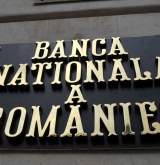Cadastral registration is well established in most economies, although coverage and reliability could be improved in rural areas.
Romania also receives the highest overall scores in SEE on the indicators of policy settings affecting human capital dimension. Numerous skills initiatives are underway, spurred and assisted by EU. However, despite much positive policy development, shortages of skilled employees are persistent in Romania.
The report notes that Romania is also the only SEE economy to have adopted a law that establishes a framework in which institutional dialogue and regular meetings between government officials and private sector take place during the legislative drafting process.
However, it was stated that the views of the private sector on draft laws are rarely taken into account by the government, and that the timeframe given for receipt of comments on legislative proposal is often significantly shorter than stipulated in the law.
As for the country’s tax policy, Romania has a well-developed fiscal monitoring program. Similar to other SEE countries, it maintains an aggregate tax revenue forecasting model. Expenditures are monitored on a monthly basis and revenues are monitored daily. In addition, Romania automatically blocks 10% of the spending envelope to keep the fiscal deficit in check.
The research concludes that SEE economies must step up investment in the area to emerge from recession and lay the groundwork for a sustainable economic development.
The South-East Europe Investment Reform Index provides a qualitative assessment of policies and institutions that critically affect the environment for direct investment in 10 economies in South-East Europe: Albania, Bulgaria, Bosnia and Herzegovina, Croatia, the former Yugoslav Republic of Macedonia, Kosovo, the Republic of Moldova, Montenegro, Romania and Serbia.
The study is a publication of the Organization for Economic Co-operation and Development and examines investment policy and promotion, human capital development, trade policy and facilitation, access to finance, regulatory reform and parliamentary processes, tax policy analysis and infrastructure for investment and SME policy.
Citeste si:
Calculator Salariu: Află câți bani primești în mână în funcție de salariul brut »
Te-ar putea interesa și:


















































































![HR [PLAY] Tech Workout - 11...](https://www.wall-street.ro/image_thumbs/thumbs/973/973fe0a3888d417feff63de42e814180-260x260-00-65.jpg?v=1714125907)









